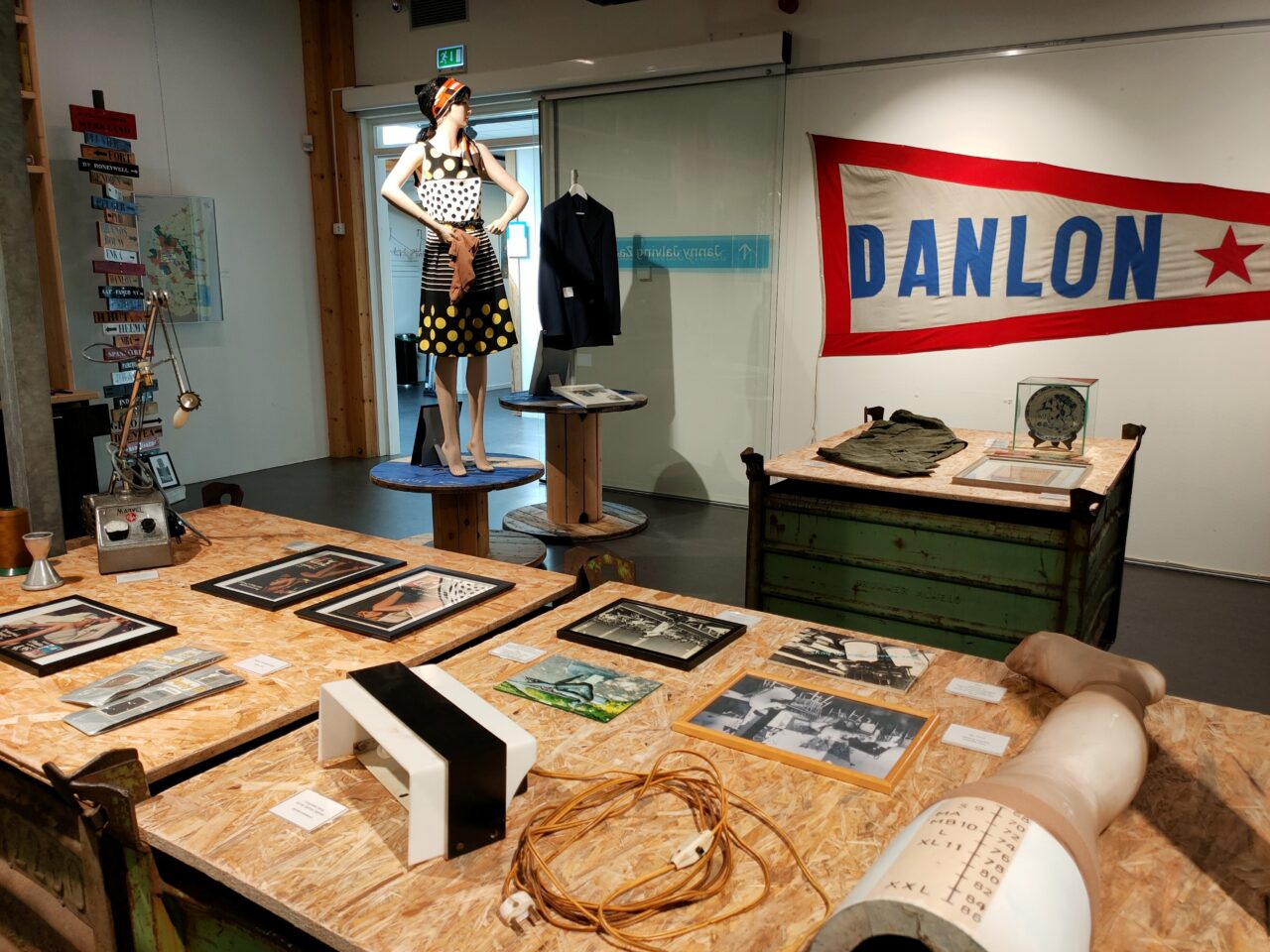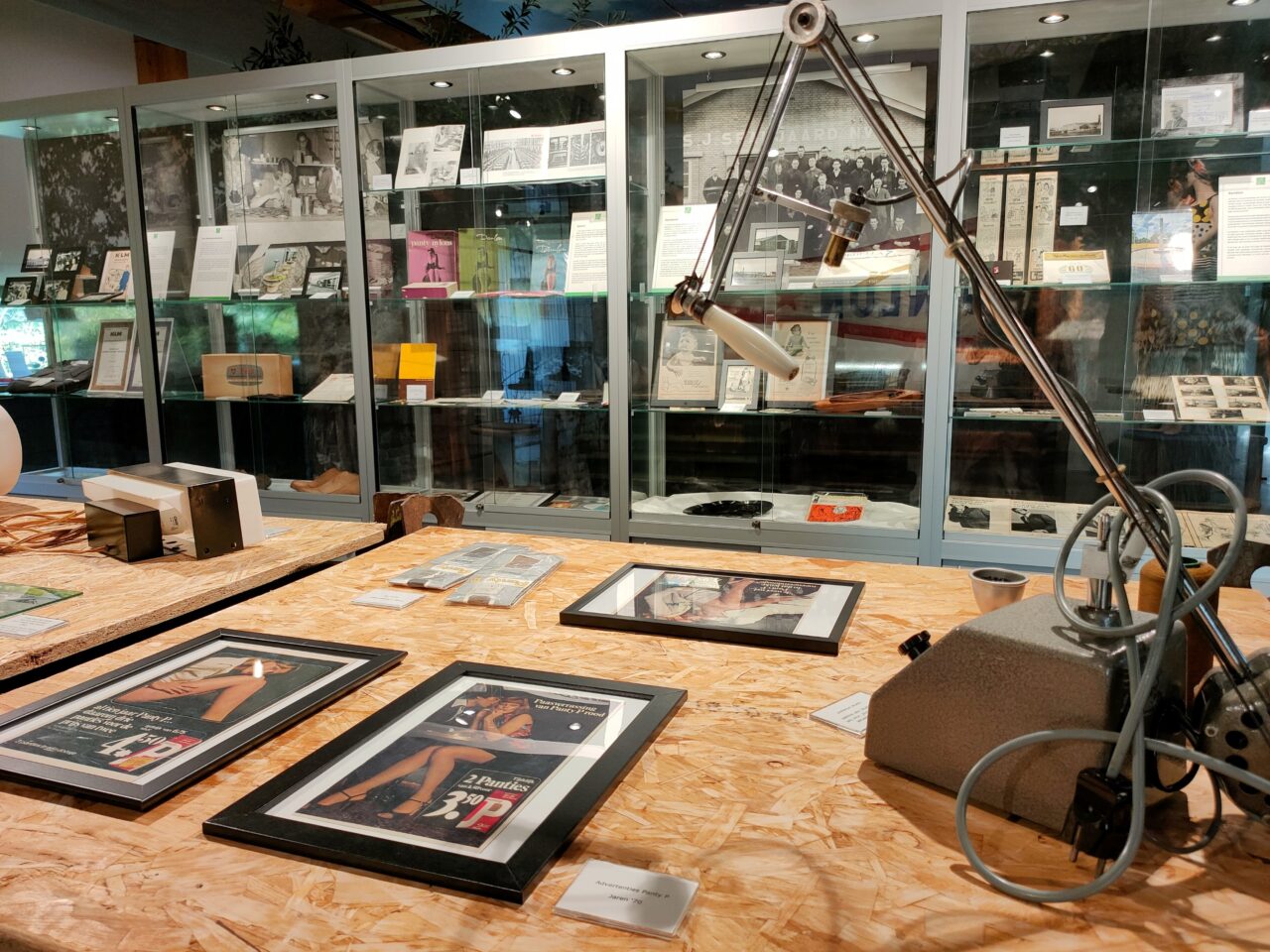In prelude to a major permanent exhibition on the industrial heritage of the municipality of Emmen, Museum Collectie Brands presents four pilot exhibitions in 2024 & 2025. These are small-scale exhibitions.
The fourth industrial heritage pilot exhibition focuses on the theme ‘textile’. The companies featured are amongst others Bendien, Danlon, Spanjaard and EHCO-KLM.
How it began
The roots of the textile industry in south-east Drenthe reach back to 1929, with the establishment of Tricotage Factory Het Klaverblad in Emmen. This was the first real industrial enterprise in the area and provided much-needed employment. Later, the factory continued under the name Textielindustrie Emmen. Still later, in the 1960s, the name changed to Sokkenfabriek Keldermans, which moved to Klazienaveen to be closer to the workforce. Despite years of production and commitment, the company came to an end in 1989 after a fire at a branch plant and failure to recover.
Bendien
A major player in the textile industry was Bendien, a clothing company that opened its doors in Emmen in 1938. Initially it produced army uniforms, but after the war it focused entirely on men’s and workwear. The Oxford and Beva brand names became household names, and Bendien grew to become the second-largest clothing manufacturer in Europe. The company employed hundreds of girls and women and was known for its warm corporate culture and attention to staff development. Yet even Bendien eventually proved unable to withstand the pressure of foreign competition. After a merger and takeover, the story ended in 1979 with the closure of the Emmen factory.
Danlon
Another company that left a profound legacy was Danish company Danlon, which settled in Emmen in 1953. It produced nylon stockings and tights, at a time when these items were a paragon of progress and prosperity. Danlon quickly grew to become the largest hosiery manufacturer in the Benelux, employing more than 1,500 people. After an all-destructive fire in 1967, the company managed to recover admirably fast, thanks in part to the efforts of staff and fellow companies. Yet even Danlon could not escape the saturated market and increasing foreign competition. Several mergers could not turn the tide; in 1996 the doors closed for good.
Spanjaard
In 1948, Twente textile mill J.A. Spanjaard opened a branch in Nieuw-Weerdinge. Here, it mainly wove cotton for Spanjaard’s household textiles, including the well-known Cinderella brand. The factory employed dozens of people and provided an important source of income for local families. After a takeover of the parent company in 1961 by Nijverdal-Ten Cate, it is unclear how the factory in Nieuw-Weerdinge fared. It was possibly still active until the early 1990s.
Fort Schoenenindustrie
Not only clothing but also footwear was produced in the municipality of Emmen. Fort Schoenenindustrie, from Haarlem, settled in Klazienaveen in 1952 and decided to move its entire production to Drenthe in 1959. The company was known for its solid luxury and work shoes, which found their way to customers at home and abroad. Yet the end came here too in 1969, when the market for craft shoes collapsed under pressure from foreign suppliers.
KLM Kleding
KLM Clothing, started in Haaksbergen as EHCO, also found its way to Drenthe. In 1964, it opened a branch in Klazienaveen, where women in particular found employment manufacturing workwear for major customers such as Albert Heijn and the PTT. With the slogan ‘Can last longer’, KLM stood for durability and quality. Although the company lasted longer than many other players, from the 1980s KLM too had to move production to low-wage countries. The closure of the Klazienaveen plant finally followed in 1998.
The end of an era
What connects all these companies is their role in the economic and social development of south-east Drenthe. They provided not only work, but also education, stability and emancipation opportunities for many women. But the story of the textile industry in this region is also a story of decline: from the 1960s onwards, the sector became increasingly cornered by globalisation, automation and shifts in the market. After a scant 70 years, the closure of KLM Clothing marked the end of the textile industry in the municipality of Emmen. What remains are memories, stories and the objects brought together in this exhibition, which show a contemporary image of the once flourishing textile industry in Southeast Drenthe.

